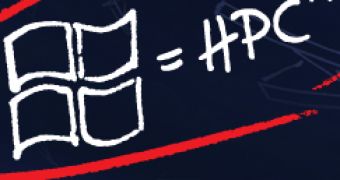Affordable is without a doubt the last thing that comes to mind in relation to a $25,000 Windows-based machine, but the fact is that the characterization is not as far off as it might seem. This because the product introduced by Microsoft and Cray is a supercomputer running Windows HPC Server 2008 aimed at the high performance computing market. Tina Couch, Senior PR Manager at Microsoft, revealed that with prices starting at a mere $25,000, the Cray CX1 Supercomputer is one of the most affordable HPC machines on the market.
“Windows HPC Server 2008, in combination with the Cray CX1 supercomputer, will provide outstanding sustained performance on applications. This combined solution will enable companies in various sectors to unify their Windows desktop and server workflows. Many Microsoft financial services customers, for example, want to unify back-office modeling and simulation with the work of front-office trading desks,” explained Vince Mendillo, director, HPC, at Microsoft.
The two companies indicated that the end purpose of their collaboration was to bring supercomputing into the mainstream. The Cray CX1 supercomputer comes preloaded with Windows HPC Server 2008 and can cost as much as $60,000. The machine packs quite a tad of horsepower, sporting no less than eight nodes and 16 Intel Xeon processors (which can be either dual or quad core). At the same time, Windows HPC Server 2008 will be able to take advantage of no less than 4 terabytes of storage and 64 gigabytes of memory per node.
“Cray sees Microsoft Windows becoming an increasingly important force in the HPC market," added Ian Miller, senior vice president of sales and marketing at Cray. "With the Cray CX1 high productivity system and Windows HPC Server 2008, we’re bringing the power of Cray supercomputing to a much wider range of new users with an affordable and adaptable system that provides incredible value and is easy to install, program and use with a broad array of applications from independent software vendors (ISVs).”

 14 DAY TRIAL //
14 DAY TRIAL //